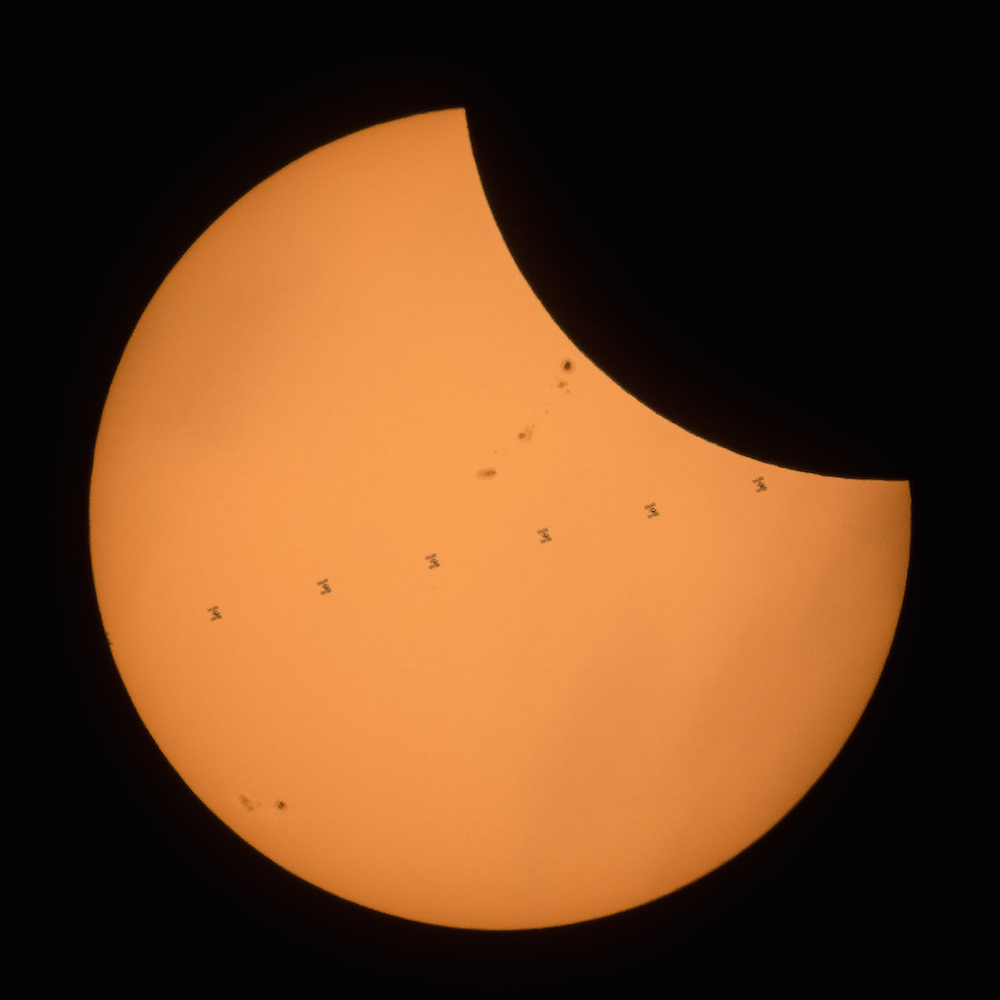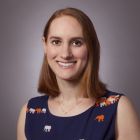Watch the International Space Station Cross Over the Eclipsed Sun
Sky gazers watching today's Great American Solar Eclipse were treated to a rare view of the International Space Station (ISS) when the spacecraft flew past a partial eclipse of the sun.
NASA videographer Joel Kowsky used a high-speed camera to capture the crossing, known as a transit, at 1,500 frames per second. Kowsky recorded the footage from near Banner, Wyoming, today (Aug. 21).
Aboard the ISS, as part of Expedition 52, are six astronauts: NASA astronauts Peggy Whitson, Jack Fischer and Randy Bresnik; Russian cosmonauts Fyodor Yurchikhin and Sergey Ryazanskiy; and European Space Agency astronaut Paolo Nespoli, NASA reported. [Photos: 2017 Great American Solar Eclipse]

The ISS transited the partial eclipse at approximately 5 miles per second (8 kilometers per second).
This is hardly the ISS' first incredible transit captured on film. NASA photographer Lauren Harnett took a series of images from Houston of the ISS transiting the moon in January 2012.
The Great American Solar Eclipse will continue to wow people today as it crosses the United States, traveling in a path stretching from Oregon to South Carolina. A partial solar eclipse will be visible from all over North America, including parts of South America, Africa and Europe.
Note: Video edited by Space.com senior producer Steve Spaleta.
Get the Space.com Newsletter
Breaking space news, the latest updates on rocket launches, skywatching events and more!
Original article on Live Science.
Join our Space Forums to keep talking space on the latest missions, night sky and more! And if you have a news tip, correction or comment, let us know at: community@space.com.

Laura is an editor at Live Science. She edits Life's Little Mysteries and reports on general science, including archaeology and animals. Her work has appeared in The New York Times, Scholastic, Popular Science and Spectrum, a site on autism research. She has won multiple awards from the Society of Professional Journalists and the Washington Newspaper Publishers Association for her reporting at a weekly newspaper near Seattle. Laura holds a bachelor's degree in English literature and psychology from Washington University in St. Louis and an advanced certificate in science writing from NYU.










